ABOUT THE DEPARTMENT
The Department of Civil Engineering was added to Jaya Engineering College in the year 2001. This Institution was affiliated by Anna University, Chennai. In the year 2001, the intake of students was 45. Because of the good infrastructure provided by the institution and the academic records produced by the several branches in this family. The strength of students was enormous and it helped to widen the faculties of Civil Department. The students of our department are disciplined, punctual and dedicative and this encouraged the faculties to reproduce their knowledge and thoughts easily to their students. Due to co-operation of students, the academic record was good. Well talented and experienced faculties were appointed and by their extra-ordinary teaching, the students got inspired and well placed. The books related to Civil Engineering were available in abundance in the library. The books needed for competitive exams were also available. Well-equipped laboratories were provided to improve the students practical knowledge. The intake was then increased to 60 students, due to the tremendous academic achievement by the course in 2011. The Masters in Structural Engineering was started in 2010 to catch up with the current trend. Our department have well trained and enthusiastic sports persons, who had participated in sports meet conducted by Anna University and state levels and 100 many medals shield and championship.
VISION
To produce professionally capable Civil Engineers for accomplishing global desires with right attitude towards social responsibility.
MISSION
| M | Mission |
|---|---|
| M01 | To provide an excellent environment for teaching – learning process and to stimulate continuing education for faculty. |
| M02 | To impart in the students conceptual knowledge, technical skills and ability to resolve complex Engineering problems using innovative techniques in association with industries in the field of Civil Engineering |
| M03 | To encourage the students for pursuing higher education, and research to face the global challenges. |
| M04 | To teach social responsibility, ethical values and a spirit of innovation & Entrepreneurship among the students. |
PROGRAMMES OFFERED BY THE DEPARTMENT
The Department offered the following Courses,
- Bachelor of Engineering in Civil Engineering (B.E CIVIL) Started in 2001
- Master of Engineering in Structural Engineering (M.E STRUCTURAL) Started in 2010
PROGRAMME EDUCATIONAL OBJECTIVES (PEO)
| PEOs | PROGRAM EDUCATIONAL OBJECTIVES |
|---|---|
| PEO1 | To prepare students for successful careers in Civil Engineering field that meets the needs of Indian and multinational companies. |
| PEO2 | To develop the confidence and ability among students to synthesize data and technical concepts and thereby apply it in real world problems. |
| PEO3 | To develop students to use modern techniques, skill and mathematical engineering tools for solving problems in Civil Engineering. |
| PEO4 | To provide students with a sound foundation in mathematical, scientific and engineering fundamentals necessary to formulate, solve and analyse engineering problems and to prepare them for graduate studies. |
| PEO5 | To promote students to work collaboratively on multi-disciplinary projects and make them engage in life-long learning process throughout their professional life. |
PROGRAMME OUTCOMES (PO)
On successful completion of the programme,
| POs | PROGRAM OUTCOME |
|---|---|
| PO1 | Graduates will demonstrate knowledge of mathematics, science and engineering. |
| PO2 | Graduates will demonstrate an ability to identify, formulate and solve engineering problems. |
| PO3 | Graduate will demonstrate an ability to design and conduct experiments, analyze and interpret data. |
| PO4 | Graduates will demonstrate an ability to design a system, component or process as per needs and specifications. |
| PO5 | Graduates will demonstrate an ability to visualize and work on laboratory and multidisciplinary tasks. |
| PO6 | Graduate will demonstrate skills to use modern engineering tools, software and equipment to analyze problems. |
| PO7 | Graduates will demonstrate knowledge of professional and ethical responsibilities. |
| PO8 | Graduate will be able to communicate effectively in both verbal and written form. |
| PO9 | Graduate will show the understanding of impact of engineering solutions on the society and also will be aware of contemporary issues |
| P10 | Graduate will develop confidence for self-education and ability for life-long learning. |
PROGRAM SPECIFIC OUTCOMES (PSO)
| POs | PROGRAM OUTCOME |
|---|---|
| PO1 | Apply the fundamental principles of basic science to engineering applications and to improve linguistic aids for effective communication. |
| PO2 | Plan, analyze, design and estimate all Civil Engineering structures with professional ethics and managerial skills for economic design and propose suitable materials and techniques for construction and rehabilitation works. |
| PO3 | Demonstrate an ability to practice conceptual knowledge in Soil mechanics, hydrology and water resources and categorize the environmental issues to propose suitable solutions. |
| PO4 | Determine proficiency of surveying techniques and acquire hands on training on material testing for the development of infrastructure using both conventional and modern techniques. |
COURSE OUTCOMES
| Semester | Theory/ Practical | Course Code | Course Title | Course Outcomes |
|---|---|---|---|---|
| 01 | Theory | HS8151 | Communicative English | Read articles of a general kind in magazines and newspapers. |
| Participate effectively in informal conversations; introduce themselves and their friends and express opinions in English. | ||||
| Comprehend conversations and short talks delivered in English | ||||
| Write short essays of a general kind and personal letters and emails in English. | ||||
| Theory | MA8151 | Engineering Mathematics - I | Use both the limit definition and rules of differentiation to differentiate functions. | |
| Apply differentiation to solve maxima and minima problems. | ||||
| Evaluate integrals both by using Riemann sums and by using the Fundamental Theorem of Calculus. | ||||
| Apply integration to compute multiple integrals, area, volume, integrals in polar coordinates, in addition to change of order and change of variables. | ||||
| Evaluate integrals using techniques of integration, such as substitution, partial fractions and integration by parts. | ||||
| Determine convergence/divergence of improper integrals and evaluate convergent improper integrals. | ||||
| Apply various techniques in solving differential equations. | ||||
| Theory | PH8151 | Engineering Physics | The students will gain knowledge on the basics of properties of matter and its applications, | |
| The students will acquire knowledge on the concepts of waves and optical devices and their applications in fibre optics, | ||||
| The students will have adequate knowledge on the concepts of thermal properties of materials and their applications in expansion joints and heat exchangers, | ||||
| The students will get knowledge on advanced physics concepts of quantum theory and its applications in tunneling microscopes, and the students will understand the basics of crystals, their structures and different crystal growth techniques. | ||||
| Theory | CY8151 | Engineering Chemistry | The knowledge gained on engineering materials, fuels, energy sources and water treatment techniques will facilitate better understanding of engineering processes and applications for further learning. | |
| Theory | GE8151 | Problem Solving and Python Programming | Develop algorithmic solutions to simple computational problems | |
| Read, write, execute by hand simple Python programs. | ||||
| Structure simple Python programs for solving problems. | ||||
| Decompose a Python program into functions. | ||||
| Represent compound data using Python lists, tuples, and dictionaries. | ||||
| Read and write data from/to files in Python Programs | ||||
| Theory | GE8152 | Engineering Graphics | Familiarize with the fundamentals and standards of Engineering graphics | |
| Perform freehand sketching of basic geometrical constructions and multiple views of objects. | ||||
| Project orthographic projections of lines and plane surfaces. | ||||
| Draw projections and solids and development of surfaces. | ||||
| Visualize and to project isometric and perspective sections of simple solids. | ||||
| Practical | GE8161 | Problem Solving and Python Programming | Write, test, and debug simple Python programs. | |
| Implement Python programs with conditionals and loops. | ||||
| Laboratory | Develop Python programs step-wise by defining functions and calling them. | |||
| Use Python lists, tuples, dictionaries for representing compound data. | ||||
| Read and write data from/to files in Python. | ||||
| Practical | BS8161 | Physics and Chemistry Laboratory | Apply principles of elasticity, optics and thermal properties for engineering applications. | |
| The students will be outfitted with hands-on knowledge in the quantitative chemical analysis of water quality related parameters | ||||
| 02 | Theory | HS8251 | Technical English | Read technical texts and write area- specific texts effortlessly. |
| Listen and comprehend lectures and talks in their area of specialisation successfully. | ||||
| Speak appropriately and effectively in varied formal and informal contexts. | ||||
| Write reports and winning job applications. | ||||
| Theory | MA8251 | Engineering Mathematics - II | Eigenvalues and eigenvectors, diagonalization of a matrix, Symmetric matrices, Positive definite matrices and similar matrices. | |
| Gradient, divergence and curl of a vector point function and related identities. | ||||
| Evaluation of line, surface and volume integrals using Gauss, Stokes and Greens theorems and their verification. | ||||
| Analytic functions, conformal mapping and complex integration. | ||||
| Laplace transform and inverse transform of simple functions, properties, various related theorems and application to differential equations with constant coefficients. | ||||
| Theory | PH8201 | Physics For Civil Engineering | The students will have knowledge on the thermal performance of buildings, | |
| The students will acquire knowledge on the acoustic properties of buildings, | ||||
| The students will get knowledge on various lighting designs for buildings, | ||||
| The students will gain knowledge on the properties and performance of engineering materials, and the students will understand the hazards of buildings. | ||||
| Theory | BE8251 | Basic Electrical and Electronics Engineering | Ability to identify the electrical components and explain the characteristics of electrical machines. | |
| Ability to identify electronics components and understand the characteristics | ||||
| Theory | GE8291 | Environmental Science and Engineering | Environmental Pollution or problems cannot be solved by mere laws. Public participation is an important aspect which serves the environmental Protection. One will obtain knowledge on the following after completing the course. | |
| Public awareness of environmental is at infant stage. | ||||
| Ignorance and incomplete knowledge has lead to misconceptions | ||||
| Development and improvement in std. of living has lead to serious environmental disasters | ||||
| Theory | GE8292 | Engineering Mechanics | Illustrate the vectorial and scalar representation of forces and moments | |
| Analyse the rigid body in equilibrium | ||||
| Evaluate the properties of surfaces and solids | ||||
| Calculate dynamic forces exerted in rigid body | ||||
| Determine the friction and the effects by the laws of friction | ||||
| Practical | GE8261 | Engineering Practices Laboratory | Fabricate carpentry components and pipe connections including plumbing works. | |
| Use welding equipments to join the structures. | ||||
| Carry out the basic machining operations | ||||
| Make the models using sheet metal works | ||||
| Illustrate on centrifugal pump, air conditioner, operations of smithy, foundary and fittings | ||||
| Carry out basic home electrical works and appliances | ||||
| Measure the electrical quantities | ||||
| Elaborate on the components, gates, soldering practices. | ||||
| Practical | CE8211 | Computer Aided Building Drawing | The students will be able to draft the plan, elevation and sectional views of the buildings, industrial structures, and framed buildings using computer softwares. | |
| 03 | Theory | MA8353 | Transforms and Partial Differential Equations | Understand how to solve the given standard partial differential equations. |
| Solve differential equations using Fourier series analysis which plays a vital role in engineering applications. | ||||
| Appreciate the physical significance of Fourier series techniques in solving one and two dimensional heat flow problems and one dimensional wave equations. | ||||
| Understand the mathematical principles on transforms and partial differential equations would provide them the ability to formulate and solve some of the physical problems of engineering. | ||||
| Use the effective mathematical tools for the solutions of partial differential equations by using Z transform techniques for discrete time systems. | ||||
| Theory | CE8301 | Strength of Materials I | Understand the concepts of stress and strain, principal stresses and principal planes. | |
| Determine Shear force and bending moment in beams and understand concept of theory of simple bending. | ||||
| Calculate the deflection of beams by different methods and selection of method for determining slope or deflection. | ||||
| Apply basic equation of torsion in design of circular shafts and helical springs, . | ||||
| Analyze the pin jointed plane and space trusses | ||||
| Theory | CE8302 | Fluid Mechanics | Get a basic knowledge of fluids in static, kinematic and dynamic equilibrium. | |
| Understand and solve the problems related to equation of motion. | ||||
| Gain knowledge about dimensional and model analysis. | ||||
| Learn types of flow and losses of flow in pipes. | ||||
| Understand and solve the boundary layer problems. | ||||
| Theory | CE8351 | Surveying | The use of various surveying instruments and mapping | |
| Measuring Horizontal angle and vertical angle using different instruments | ||||
| Methods of Leveling and setting Levels with different instruments | ||||
| Concepts of astronomical surveying and methods to determine time, longitude, latitude and azimuth | ||||
| Concept and principle of modern surveying. | ||||
| Theory | CE8391 | Construction Materials | Compare the properties of most common and advanced building materials. | |
| Understand the typical and potential applications of lime, cement and aggregates | ||||
| Know the production of concrete and also the method of placing and making of concrete elements. | ||||
| Understand the applications of timbers and other materials | ||||
| Understand the importance of modern material for construction. | ||||
| Theory | CE8392 | Engineering Geology | Will be able to understand the importance of geological knowledge such as earth, earthquake, volcanism and the action of various geological agencies. | |
| Will get basics knowledge on properties of minerals. | ||||
| Gain knowledge about types of rocks, their distribution and uses. | ||||
| Will understand the methods of study on geological structure. | ||||
| Will understand the application of geological investigation in projects such as dams, tunnels, bridges, roads, airport and harbor | ||||
| Practical | CE8311 | Construction Materials Laboratory | The students will have the required knowledge in the area of testing of construction materials and components of construction elements experimentally. | |
| Practical | CE8361 | Surveying Laboratory | Students completing this course would have acquired practical knowledge on handling basic survey instruments including Theodolite, Tacheometry, Total Station and GPS and have adequate knowledge to carryout Triangulation and Astronomical surveying including general field marking for various engineering projects and Location of site etc. | |
| Practical | HS8381 | Interpersonal Skills / Listening and Speaking | Listen and respond appropriately. | |
| Participate in group discussions | ||||
| Make effective presentations | ||||
| Participate confidently and appropriately in conversations both formal and informal | ||||
| 04 | Theory | MA8491 | Numerical Methods | Understand the basic concepts and techniques of solving algebraic and transcendental equations. |
| Appreciate the numerical techniques of interpolation and error approximations in various intervals in real life situations. | ||||
| Apply the numerical techniques of differentiation and integration for engineering problems. | ||||
| Understand the knowledge of various techniques and methods for solving first and second order ordinary differential equations. | ||||
| Solve the partial and ordinary differential equations with initial and boundary conditions by using certain techniques with engineering applications | ||||
| Theory | CE8401 | Construction Techniques and | Know the different construction techniques and structural systems | |
| Practices | Understand various techniques and practices on masonry construction, flooring, and roofing. | |||
| Plan the requirements for substructure construction. | ||||
| Know the methods and techniques involved in the construction of various types of super structures | ||||
| Select, maintain and operate hand and power tools and equipment used in the building construction sites. | ||||
| Theory | CE8402 | Strength of Materials II | Determine the strain energy and compute the deflection of determinate beams, frames and trusses using energy principles. | |
| Analyze propped cantilever, fixed beams and continuous beams using theorem of three moment equation for external loadings and support settlements. | ||||
| Find the load carrying capacity of columns and stresses induced in columns and cylinders | ||||
| Determine principal stresses and planes for an element in three dimensional state of stress and study various theories of failure | ||||
| Determine the stresses due to Unsymmetrical bending of beams, locate the shear center, and find the stresses in curved beams. | ||||
| Theory | CE8403 | Applied Hydraulic Engineering | Apply their knowledge of fluid mechanics in addressing problems in open channels. | |
| Able to identify a effective section for flow in different cross sections. | ||||
| To solve problems in uniform, gradually and rapidly varied flows in steady state conditions. | ||||
| Understand the principles, working and application of turbines. | ||||
| Understand the principles, working and application of pumps. | ||||
| Theory | CE8404 | Concrete Technology | The various requirements of cement, aggregates and water for making concrete | |
| The effect of admixtures on properties of concrete | ||||
| The concept and procedure of mix design as per IS method | ||||
| The properties of concrete at fresh and hardened state | ||||
| The importance and application of special concretes. | ||||
| Theory | CE8491 | Soil Mechanics | Classify the soil and assess the engineering properties, based on index properties. | |
| Understand the stress concepts in soils | ||||
| Understand and identify the settlement in soils. | ||||
| Determine the shear strength of soil | ||||
| Analyze both finite and infinite slopes. | ||||
| Practical | CE8481 | Strength of Materials Laboratory | The students will have the required knowledge in the area of testing of materials and components of structural elements experimentally. | |
| Practical | CE8461 | Hydraulic Engineering Laboratory | The students will be able to measure flow in pipes and determine frictional losses. | |
| The students will be able to develop characteristics of pumps and turbines. | ||||
| Practical | HS8461 | Advanced Reading and Writing | Write different types of essays. | |
| Write winning job applications. | ||||
| Read and evaluate texts critically. | ||||
| Display critical thinking in various professional contexts. | ||||
| 05 | Theory | CE8501 | Design of Reinforced Cement Concrete Elements | Understand the various design methodologies for the design of RC elements. |
| Know the analysis and design of flanged beams by limit state method and sign of beams for shear, bond and torsion. | ||||
| Design the various types of slabs and staircase by limit state method. | ||||
| Design columns for axial, uniaxial and biaxial eccentric loadings. | ||||
| Design of footing by limit state method. | ||||
| Theory | CE8502 | Structural Analysis I | Analyze continuous beams, pin-jointed indeterminate plane frames and rigid plane frames by strain energy method | |
| Analyse the continuous beams and rigid frames by slope defection method. | ||||
| Understand the concept of moment distribution and analysis of continuous beams and rigid frames with and without sway. | ||||
| Analyse the indeterminate pin jointed plane frames continuous beams and rigid frames using matrix flexibility method. | ||||
| Understand the concept of matrix stiffness method and analysis of continuous beams, pin jointed trusses and rigid plane frames. | ||||
| Theory | EN8491 | Water Supply Engineering | An insight into the structure of drinking water supply systems, including water transport, treatment and distribution | |
| The knowledge in various unit operations and processes in water treatment | ||||
| An ability to design the various functional units in water treatment | ||||
| An understanding of water quality criteria and standards, and their relation to public health | ||||
| The ability to design and evaluate water supply project alternatives on basis of chosen criteria. | ||||
| Theory | CE8591 | Foundation Engineering | Understand the site investigation, methods and sampling. | |
| Get knowledge on bearing capacity and testing methods. | ||||
| Design shallow footings. | ||||
| Determine the load carrying capacity, settlement of pile foundation. | ||||
| Determine the earth pressure on retaining walls and analysis for stability. | ||||
| Theory | GE8071 | Professional Elective I -Disaster Management | Differentiate the types of disasters, causes and their impact on environment and society | |
| Assess vulnerability and various methods of risk reduction measures as well as mitigation. | ||||
| Draw the hazard and vulnerability profile of India, Scenarious in the Indian context, Disaster damage assessment and management. | ||||
| Theory | ORO551 | Open Elective I* - Renewable Energy Sources | Understanding the physics of solar radiation. | |
| Ability to classify the solar energy collectors and methodologies of storing solar energy. | ||||
| Knowledge in applying solar energy in a useful way. | ||||
| Knowledge in wind energy and biomass with its economic aspects. | ||||
| Knowledge in capturing and applying other forms of energy sources like wind, biogas and geothermal energies. | ||||
| Practical | CE8511 | Soil Mechanics Laboratory | Students are able to conduct tests to determine both the index and engineering properties of soils and to characterize the soil based on their properties. | |
| Practical | CE8512 | Water and Waste Water Analysis Laboratory | Quantify the pollutant concentration in water and wastewater | |
| Suggest the type of treatment required and amount of dosage required for the treatment | ||||
| Examine the conditions for the growth of micro-organisms | ||||
| Practical | CE8513 | Survey Camp (2 weeks -During IV Semester) | Determine the area of traverse using Total station and GPS | |
| Plot contours and the undulating ground surface. | ||||
| Perform highway alignment and set out curves for new roads | ||||
| Handle total station and do field observation using it. | ||||
| Participate as a team and work with fellow mates in carrying out the surveying of | ||||
| Sun observation to determine azimuth | ||||
| 06 | Theory | CE8601 | Design of Steel Structural Elements | · Understand the concepts of various design philosophies |
| · Design common bolted and welded connections for steel structures | ||||
| · Design tension members and understand the effect of shear lag. | ||||
| · Understand the design concept of axially loaded columns and column base connections. | ||||
| · Understand specific problems related to the design of laterally restrained and unrestrained steel beams. | ||||
| Theory | CE8602 | Structural Analysis II | · Draw influence lines for statically determinate structures and calculate critical stress resultants. | |
| · Understand Muller Breslau principle and draw the influence lines for statically indeterminate beams. | ||||
| · Analyse of three hinged, two hinged and fixed arches. | ||||
| · Analyse the suspension bridges with stiffening girders | ||||
| · Understand the concept of Plastic analysis and the method of analyzing beams and rigid frames. | ||||
| Theory | CE8603 | Irrigation Engineering | · Have knowledge and skills on crop water requirements. | |
| · Understand the methods and management of irrigation. | ||||
| · Gain knowledge on types of Impounding structures | ||||
| · Understand methods of irrigation including canal irrigation. | ||||
| · Get knowledge on water management on optimization of water use. | ||||
| Theory | CE8604 | Highway Engineering | · Get knowledge on planning and aligning of highway. | |
| · Geometric design of highways | ||||
| · Design flexible and rigid pavements. | ||||
| · Gain knowledge on Highway construction materials, properties, testing methods | ||||
| · Understand the concept of pavement management system, evaluation of distress and maintenance of pavements | ||||
| Theory | EN8592 | Wastewater Engineering | · An ability to estimate sewage generation and design sewer system including sewage pumping stations | |
| · The required understanding on the characteristics and composition of sewage, self- purification of streams | ||||
| · An ability to perform basic design of the unit operations and processes that are used in sewage treatment | ||||
| · Understand the standard methods for disposal of sewage. | ||||
| · Gain knowledge on sludge treatment and disposal. | ||||
| Theory | CE8005 | Professional Elective II- Air Pollution and Control Engineering | · An understanding of the nature and characteristics of air pollutants, noise pollution and basic concepts of air quality management | |
| · Ability to identify, formulate and solve air and noise pollution problems | ||||
| · Ability to design stacks and particulate air pollution control devices to meet applicable standards. | ||||
| · Ability to select control equipments. | ||||
| · Ability to ensure quality, control and preventive measures. | ||||
| Practical | CE8611 | Highway Engineering Laboratory | · Student knows the techniques to characterize various pavement materials through relevant tests. | |
| Practical | CE8612 | Irrigation and Environmental Engineering Drawing | · The students after completing this course will be able to design and draw various units of Municipal water treatment plants and sewage treatment plants. | |
| Practical | HS8581 | Professional Communication | · Make effective presentations | |
| · Participate confidently in Group Discussions. | ||||
| · Attend job interviews and be successful in them. | ||||
| · Develop adequate Soft Skills required for the workplace | ||||
| 07 | Theory | CE8701 | Estimation, Costing and Valuation Engineering | · Estimate the quantities for buildings, |
| · Rate Analysis for all Building works, canals, and Roads and Cost Estimate. | ||||
| · Understand types of specifications, principles for report preparation, tender notices types. | ||||
| · Gain knowledge on types of contracts | ||||
| · Evaluate valuation for building and land. | ||||
| Theory | CE8702 | Railways, Airports, Docks and Harbour Engineering | · Understand the methods of route alignment and design elements in Railway Planning and Constructions. | |
| · Understand the Construction techniques and Maintenance of Track laying and Railway stations. | ||||
| · Gain an insight on the planning and site selection of Airport Planning and design. | ||||
| · Analyze and design the elements for orientation of runways and passenger facility systems. | ||||
| · Understand the various features in Harbours and Ports, their construction, coastal protection works and coastal Regulations to be adopted. | ||||
| Theory | CE8703 | Structural Design and Drawing | · Design and draw reinforced concrete Cantilever and Counterfort Retaining Walls | |
| · Design and draw flat slab as per code provisions | ||||
| · Design and draw reinforced concrete and steel bridges | ||||
| · Design and draw reinforced concrete and steel water tanks | ||||
| · Design and detail the various steel trusses and gantry girders | ||||
| Theory | EN8591 | Professional Elective III- Municipal Solid Waste Management | · Understanding of the nature and characteristics of municipal solid wastes and the regulatory requirements regarding municipal solid waste management. | |
| · Reduction, reuse and recycling of waste | ||||
| · Ability to plan and design systems for storage, collection, transport, processing and disposal of municipal solid waste. | ||||
| · Knowledge on the issues on solid waste management from an integrated and holistic perspective, as well as in the local and international context. | ||||
| · Design and operation of sanitary landfill. | ||||
| Theory | OME754 | Open Elective II* - Industrial Safety | · Students must be able to identify and prevent chemical, environmental mechanical, fire hazard through analysis and apply proper safety techniques on safety engineering and management. | |
| Practical | CE8711 | Creative and Innovative Project (Activity Based - Subject Related) | · On completion of the project students will have a better experience in planning various intention problems related to Civil Engineering. | |
| Practical | CE8712 | Industrial Training (4 weeks During VI Semester Summer) | · The intricacies of implementation textbook knowledge into practice. | |
| · The concepts of developments and implementation of new techniques | ||||
| 08 | Theory | GE8076 | Professional Elective IV-Professional Ethics in Engineering | Upon completion of the course, the student should be able to apply ethics in society, discuss the ethical issues related to engineering and realize the responsibilities and rights in the society. |
| Theory | CE8020 | Professional Elective V- Maintenance, Repair and Rehabilitation of Structures | The importance of maintenance and assessment method of distressed structures. | |
| The strength and durability properties, their effects due to climate and temperature. | ||||
| Recent development in concrete | ||||
| The techniques for repair rand protection methods | ||||
| Repair, rehabilitation and retrofitting of structures and demolition methods | ||||
| Practical | CE8811 | Project Work | On Completion of the project work students will be in a position to take up any challenging practical problems and find solution by formulating proper methodology. |
| Semester | Theory/ Practical | Course Code | Course Title | Course Outcomes |
|---|---|---|---|---|
| 01 | Theory | HS6151 | Technical English - I | · Speak clearly, confidently, comprehensibly, and communicate with one or many listeners using appropriate communicative strategies. |
| · Write cohesively and coherently and flawlessly avoiding grammatical errors, using a wide vocabulary range, organizing their ideas logically on a topic. | ||||
| · Read different genres of texts adopting various reading strategies. | ||||
| · Listen/view and comprehend different spoken discourses/excerpts in different accents | ||||
| Theory | MA6151 | Mathematics - I | · This course equips students to have basic knowledge and understanding in one fields of materials, integral and differential calculus. | |
| Theory | PH6151 | Engineering Physics - I | · The students will have knowledge on the basics of physics related to properties of matter, optics, acoustics etc., and they will apply these fundamental principles to solve practical problems related to materials used for engineering applications. | |
| Theory | CY6151 | Engineering Chemistry - I | · The knowledge gained on polymer chemistry, thermodynamics. spectroscopy, phase rule and nano materials will provide a strong platform to understand the concepts on these subjects for further learning. | |
| Theory | GE6151 | Computer Programming | · Design C Programs for problems. | |
| · Write and execute C programs for simple applications. | ||||
| Theory | GE6152 | Engineering Graphics | · Perform free hand sketching of basic geometrical constructions and multiple views of objects. | |
| · Do orthographic projection of lines and plane surfaces. | ||||
| · Draw projections and solids and development of surfaces. | ||||
| · Prepare isometric and perspective sections of simple solids. | ||||
| · Demonstrate computer aided drafting. | ||||
| Practical | GE6161 | Computer Practices Laboratory | · Apply good programming design methods for program development. | |
| · Design and implement C programs for simple applications. | ||||
| · Develop recursive programs. | ||||
| Practical | GE6162 | Engineering Practices Laboratory | · Ability to fabricate carpentry components and pipe connections including plumbing works. | |
| · Ability to use welding equipments to join the structures. | ||||
| · Ability to fabricate electrical and electronics circuits | ||||
| GE6163 | Physics and Chemistry Laboratory - I | · The hands on exercises undergone by the students will help them to apply physics principles of optics and thermal physics to evaluate engineering properties of materials. | ||
| · The students will be outfitted with hands-on knowledge in the quantitative chemical analysis of water quality related parameters. | ||||
| 02 | Theory | HS6251 | Technical English - II | · Speak convincingly, express their opinions clearly, initiate a discussion, negotiate, argue using appropriate communicative strategies. |
| · Write effectively and persuasively and produce different types of writing such as narration, description, exposition and argument as well as creative, critical, analytical and evaluative writing. | ||||
| · Read different genres of texts, infer implied meanings and critically analyse and evaluate them for ideas as well as for method of presentation. | ||||
| · Listen/view and comprehend different spoken excerpts critically and infer unspoken and implied meanings. | ||||
| Theory | MA6251 | Mathematics - II | · The subject helps the students to develop the fundamentals and basic concepts in vector calculus, ODE, Laplace transform and complex functions. Students will be able to solve problems related to engineering applications by using these techniques. | |
| Theory | PH6251 | Engineering Physics - II | · The students will have the knowledge on physics of materials and that knowledge will be used by them in different engineering and technology applications. | |
| Theory | CY6251 | Engineering Chemistry - II | · The knowledge gained on engineering materials, fuels, energy sources and water treatment techniques will facilitate better understanding of engineering processes and applications for further learning. | |
| Theory | GE6252 | Basic Electrical and Electronics Engineering | · Ability to identify the electrical components explain the characteristics of electrical machines. | |
| · Ability to identify electronics components and use of them to design circuits. | ||||
| Theory | GE6253 | Engineering Mechanics | · Ability to explain the differential principles applies to solve engineering problems dealing with force, displacement, velocity and acceleration. | |
| · Ability to analyse the forces in any structures. | ||||
| · Ability to solve rigid body subjected to dynamic forces. | ||||
| Practical | GE6261 | Computer Aided Drafting and Modeling Laboratory | · Ability to use the software packers for drafting and modeling | |
| · Ability to create 2d and 3d models of engineering components | ||||
| Practical | GE6262 | Physics and Chemistry Laboratory - II | · The students will have the ability to test materials by using their knowledge of applied physics principles in optics and properties of matter. | |
| · The students will be conversant with hands-on knowledge in the quantitative chemical analysis of water quality related parameters, corrosion measurement and cement analysis. | ||||
| 03 | Theory | MA6351 | Transforms and Partial Differential Equations | · The understanding of the mathematical principles on transforms and partial differential equations would provide them the ability to formulate and solve some of the physical problems of engineering. |
| Theory | GE6351 | Environmental Science and Engineering | · Public awareness of environmental is at infant stage. | |
| · Ignorance and incomplete knowledge has lead to misconceptions | ||||
| · Development and improvement in std. of living has lead to serious environmental disasters | ||||
| Theory | CE6301 | Engineering Geology | · Will be able to understand the importance of geological knowledge such as earth, earthquake, volcanism and the action of various geological agencies. | |
| · Will realize the importance of this knowledge in projects such as dams, tunnels, bridges, roads, airport and harbor | ||||
| · Can choose the types of foundations and other related aspects. | ||||
| Theory | CE6302 | Mechanics of Solids | · Thorough understanding of the fundamental concepts of stress and strain in mechanics of solids and structures. | |
| · The ability to analyse determinate beams and trusses to determine shear forces, bending moments and axial forces. | ||||
| · A sufficient knowledge in designing shafts to transmit required power and also springs for its maximum energy storage capacities | ||||
| Theory | CE6303 | Mechanics of Fluids | · The students will be able to get a basic knowledge of fluids in static, kinematic and dynamic equilibrium. | |
| · They will also gain the knowledge of the applicability of physical laws in addressing problems in hydraulics. | ||||
| Theory | CE6304 | Surveying I | · Students are expected to use all surveying equipments, prepare LS & CS, contour maps and carryout surveying works related to land and civil engineering projects. | |
| Practical | CE6311 | Survey Practical I | · Students completing this course would have acquired practical knowledge on handling basic survey instruments including leveling and development of contour map of given area. | |
| Practical | CE6312 | Computer Aided Building Drawing | · The students will be able to draft the plan, elevation and sectional views of the buildings, industrial structures, framed buildings using computer softwares. | |
| 04 | Theory | MA6459 | Numerical Methods | · The students will have a clear perception of the power of numerical techniques, ideas and would be able to demonstrate the applications of these techniques to problems drawn from industry, management and other engineering fields. |
| Theory | CE6401 | Construction Materials | · Compare the properties of most common and advanced building materials. | |
| · Understand the typical and potential applications of these materials | ||||
| · Understand the relationship between material properties and structural form | ||||
| · Understand the importance of experimental verification of material properties. | ||||
| Theory | CE6402 | Strength of Materials | · Students will have through knowledge in analysis of indeterminate beams and use of energy method for estimating the slope and deflections of beams and trusses. | |
| · They will be in a position to assess the behaviour of columns, beams and failure of materials. | ||||
| Theory | CE6403 | Applied Hydraulic Engineering | · The students will be able to apply their knowledge of fluid mechanics in addressing problems in open channels. | |
| · They will possess the skills to solve problems in uniform, gradually and rapidly varied flows in steady state conditions. | ||||
| · They will have knowledge in hydraulic machineries (pumps and turbines). | ||||
| Theory | CE6404 | Surveying II | · Understand the advantages of electronic surveying over conventional surveying methods | |
| · Understand the working principle of GPS, its components, signal structure, and error sources | ||||
| · Understand various GPS surveying methods and processing techniques used in GPS observations | ||||
| Theory | CE6405 | Soil Mechanics | · Students have the ability to determine Index properties and classify the soil. They can also know to determine engineering properties through standard tests and empirical correction with index properties. | |
| Practical | CE6411 | Strength of Materials Laboratory | · The students will have the required knowledge in the area of testing of materials and components of structural elements experimentally. | |
| Practical | CE6412 | Hydraulic Engineering Laboratory | · The students will be able to measure flow in pipes and determine frictional losses. | |
| · The students will be able to develop characteristics of pumps and turbines. | ||||
| Practical | CE6413 | Survey Practical II | · Students completing this course would have acquired practical knowledge on handling survey instruments like Theodolite, Tacheometery and Total station and have adequate knowledge to carryout Triangulation and Astronomical surveying including general field marking for various engineering projects and curves setting. | |
| 05 | Theory | CE6501 | Structural Analysis I | · Analysis trusses, frames and arches |
| · Analyse structures for moving loads and | ||||
| · Will be conversant with classical methods of analysis. | ||||
| Theory | CE6502 | Foundation Engineering | · Students will have the ability to select type of foundation required for the soil at a place and able to design shallow, foundation, deep foundation and retaining structures. | |
| Theory | CE6503 | Environmental Engineering I | · An insight into the structure of drinking water supply systems, including water transport, treatment and distribution | |
| · An understanding of water quality criteria and standards, and their relation to public health, | ||||
| · The ability to design and evaluate water supply project alternatives on basis of chosen selection criteria | ||||
| Theory | CE6504 | Highway Engineering | · The students completing this course would have acquired knowledge on planning, design, construction and maintenance of highways as per IRC standards and other methods. | |
| Theory | CE6505 | Design of Reinforced Concrete Elements | · The student shall be in a position to design the basic elements of reinforced concrete structures. | |
| Theory | CE6506 | Construction Techniques, Equipment and Practice | · Students completing the course will have understanding of different construction techniques, practices and equipments. They will be able to plan the requirements for substructure and superstructure a construction. | |
| Practical | GE6674 | Communication and Soft skills- Laboratory Based | · Take international examination such as IELTS and TOEFL | |
| · Make presentations and Participate in Group Discussions. | ||||
| · Successfully answer questions in interviews. | ||||
| Practical | CE6511 | Soil Mechanics Laboratory | · Students know the techniques to determine index properties and engineering properties such as shear strength, compressibility and permeability by conducting appropriate tests. | |
| Practical | CE6512 | Survey Camp | · Determine the area of traverse using Total station and GPS | |
| · Plot contours and the undulating ground surface. | ||||
| · Perform highway alignment and set out curves for new roads | ||||
| · Handle total station and do field observation using it. | ||||
| · Participate as a team and work with fellow mates in carrying out the surveying | ||||
| of Sun observation to determine azimuth | ||||
| 06 | Theory | CE6601 | Design of Reinforced Concrete & Brick Masonry Structures | · The student shall have a comprehensive design knowledge related to various structural systems. |
| Theory | CE6602 | Structural Analysis II | · The student will have the knowledge on advanced methods of analysis of structures including space and cable structures. | |
| Theory | CE6603 | Design of Steel Structures | · The students would have knowledge on the design of structural steel members subjected to compressive, tensile and bending forces, as per current code and also know to design structural systems such as roof trusses and gantry girders. | |
| Theory | CE6604 | Railways, Airports and Harbour Engineering | · On completing the course, the students will have the ability to plan and design various civil Engineering aspects of Railways, Airports and Harbour. | |
| Theory | CE6605 | Environmental Engineering II | · Ability to estimate sewage generation and design sewer system including sewage pumping stations | |
| · Required understanding on the characteristics and composition of sewage, self purification of streams | ||||
| · Ability to perform basic design of the unit operations and processes that are used in sewage treatment | ||||
| Theory | CE6002 | Elective I- Concrete Technology | · The student will possess the knowledge on properties of materials required for concrete tests on those materials and design procedures for making conventional and special concretes. | |
| Practical | CE6611 | Environmental Engineering Laboratory | · The students completing the course will be able to characterize wastewater and conduct treatability studies. | |
| Practical | CE6612 | Concrete and Highway Engineering Laboratory | · Student knows the techniques to characterize various pavement materials through relevant tests. | |
| 07 | Theory | CE6701 | Structural Dynamics and Earthquake Engineering | · At the end of the course, student will have the knowledge to analyse structures subjected to dynamic loading and to design the structures for seismic loading as per code provisions. |
| Theory | CE6702 | Prestressed Concrete Structures | · Student shall have a knowledge on methods of prestressing and able to design various prestressed concrete structural elements. | |
| Theory | CE6703 | Water Resources and Irrigation Engineering | · The students will have knowledge and skills on Planning, design, operation and management of reservoir system. | |
| · The student will gain knowledge on different methods of irrigation including canal irrigation. | ||||
| Theory | CE6704 | Estimation and Quantity Surveying | · The student shall be able to estimate the material quantities, prepare a bill of quantities, make specifications and prepare tender documents. Student shall be able to prepare value estimates. | |
| Theory | CE6006 | Elective II- Traffic Engineering and Management | · Analyse traffic problems and plan for traffic systems various uses | |
| · Design Channels, Intersections, signals and parking arrangements | ||||
| · Develop Traffic management Systems | ||||
| Practical | EN6501 | Elective III- Municipal Solid Waste Management | · an understanding of the nature and characteristics of municipal solid wastes and the regulatory requirements regarding municipal solid waste management | |
| · ability to plan waste minimisation and design storage, collection, transport, processing and disposal of municipal solid waste | ||||
| Practical | CE6711 | Computer Aided Design and Drafting Laboratory | · At the end of the course the student acquires hands on experience in design and preparation of structural drawings for concrete / steel structures normally encountered in Civil Engineering practice. | |
| Practical | CE6712 | Design Project | · On completion of the design project students will have a better experience in designing various design problems related to Civil Engineering. | |
| 08 | Theory | MG6851 | Principles of Management | · Upon completion of the course, students will be able to have clear understanding of managerial functions like planning, organizing, staffing, leading & controlling and have same basic knowledge on international aspect of management |
| Theory | CE6016 | Elective IV- Prefabricated Structures | · The student shall be able to design some of the prefabricated elements and also have the knowledge of the construction methods in using these elements. | |
| Theory | CE6021 | Elective V- Repair and Rehabilitation of Structures | · Students must gained knowledge on quality of concrete, durability aspects, causes of deterioration, assessment of distressed structures, repairing of structures and demolition procedures. | |
| Practical | CE6811 | Project Work | · On Completion of the project work students will be in a position to take up any challenging practical problems and find solution by formulating proper methodology. |


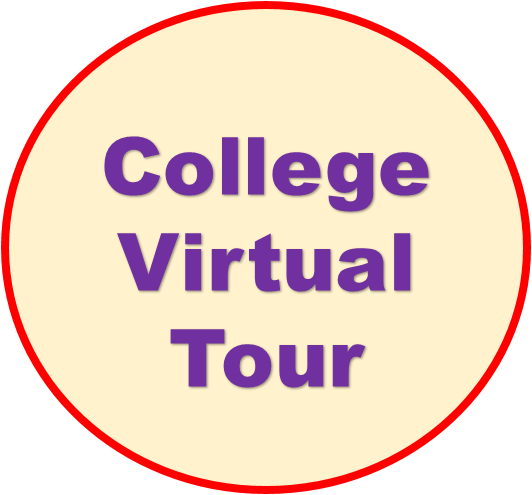
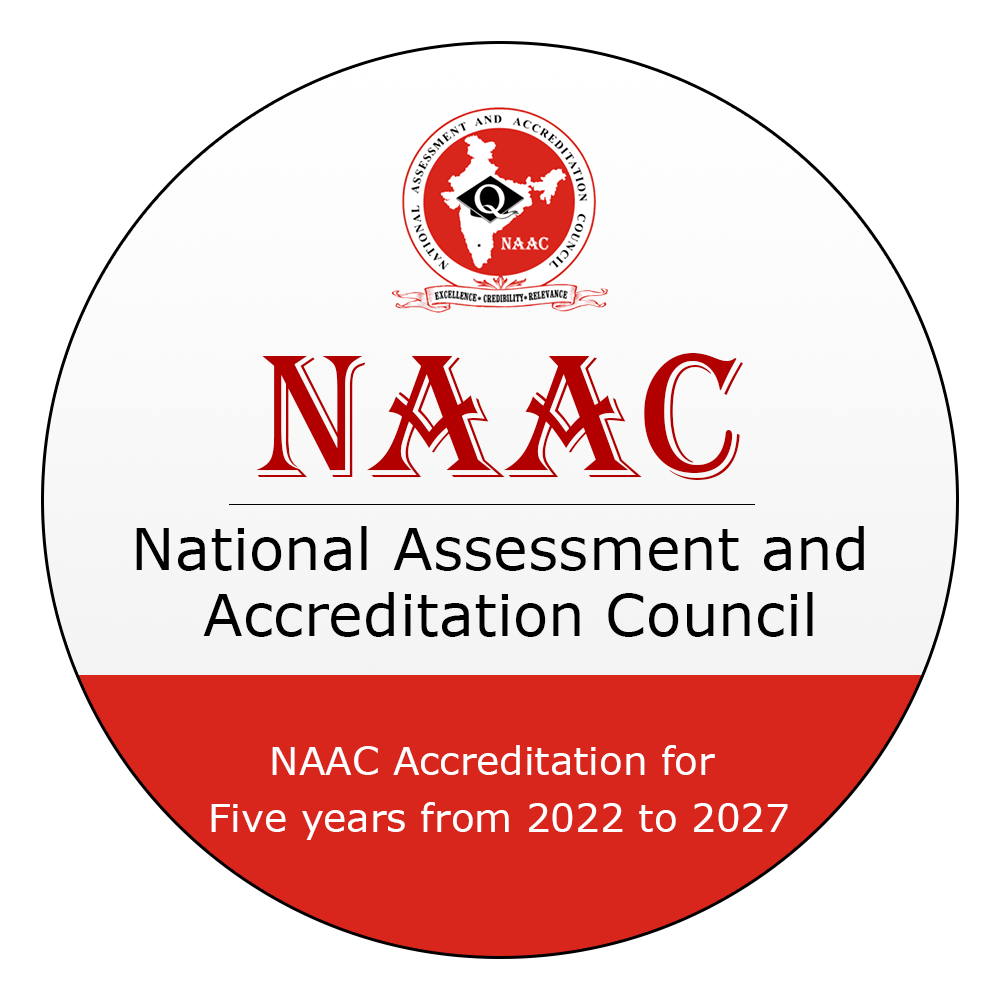
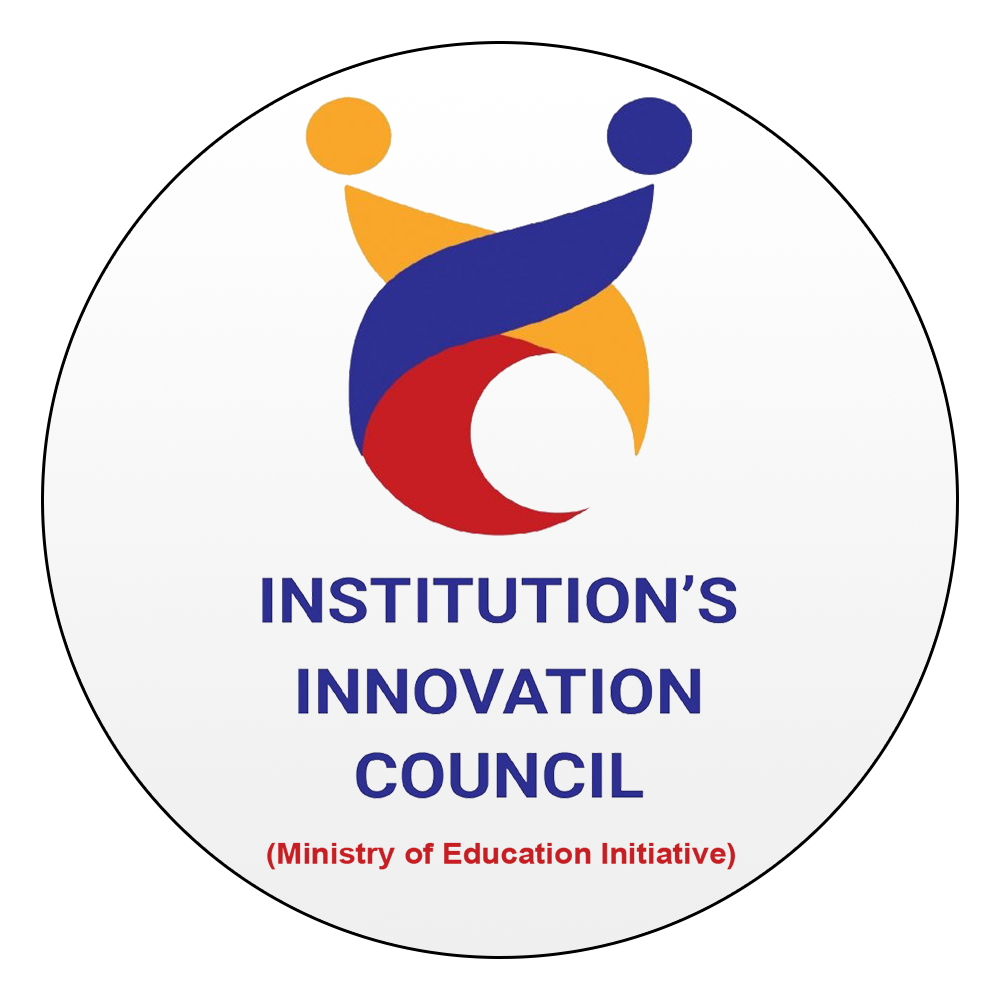
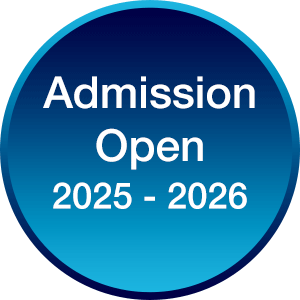
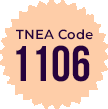
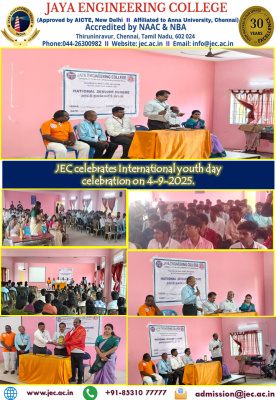
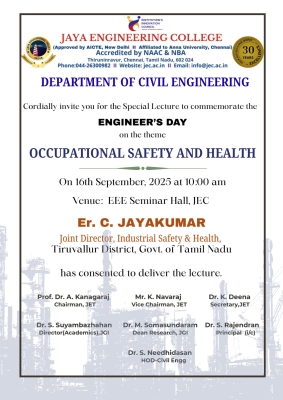
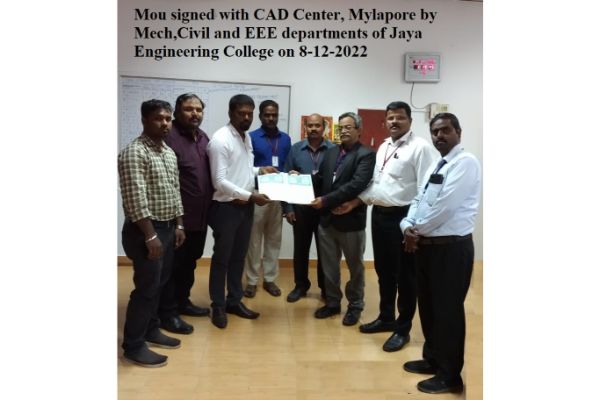
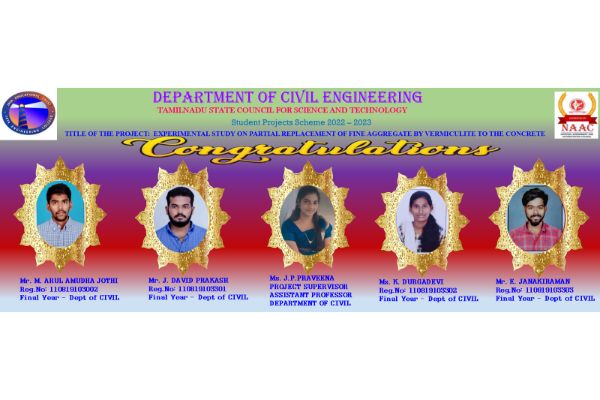
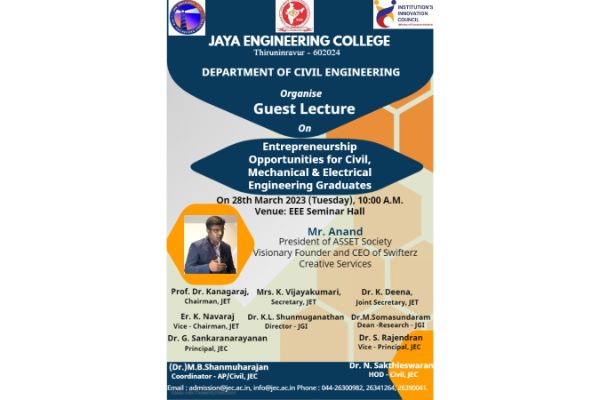
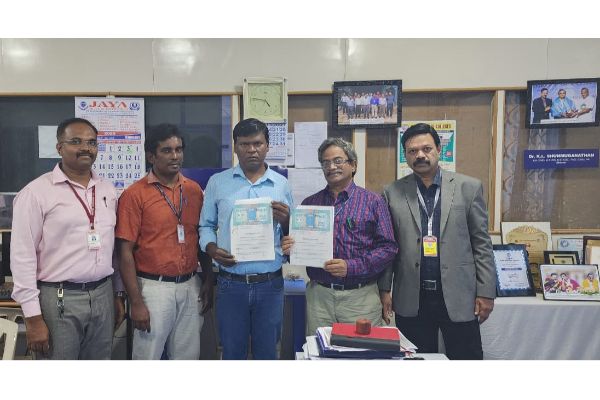
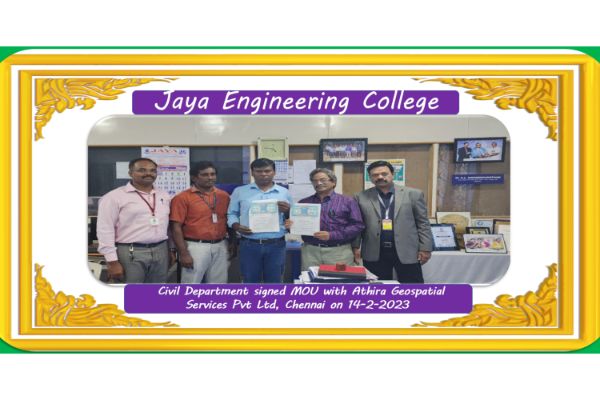


For Online Grievance : onlinegrievance@jec.ac.in